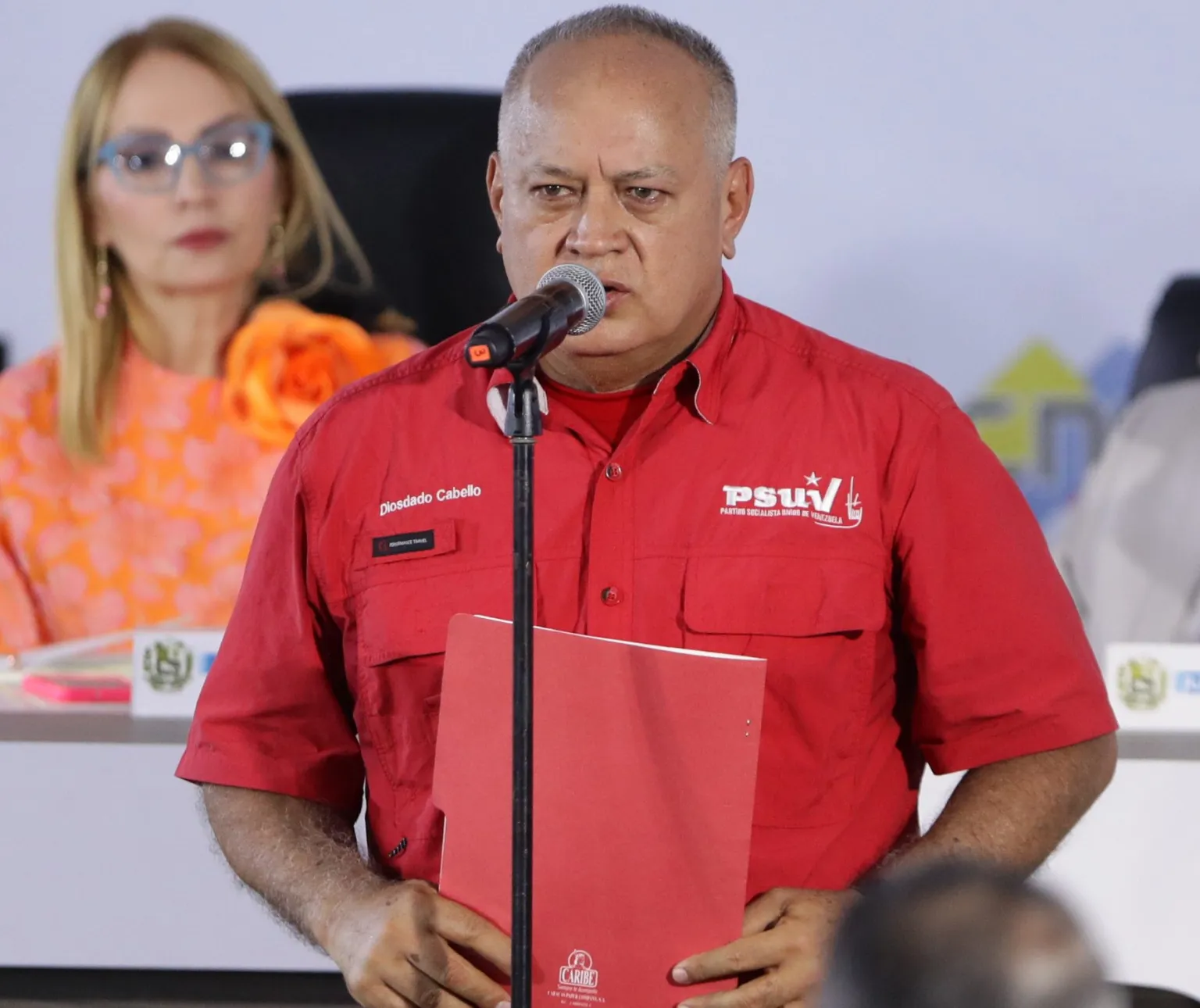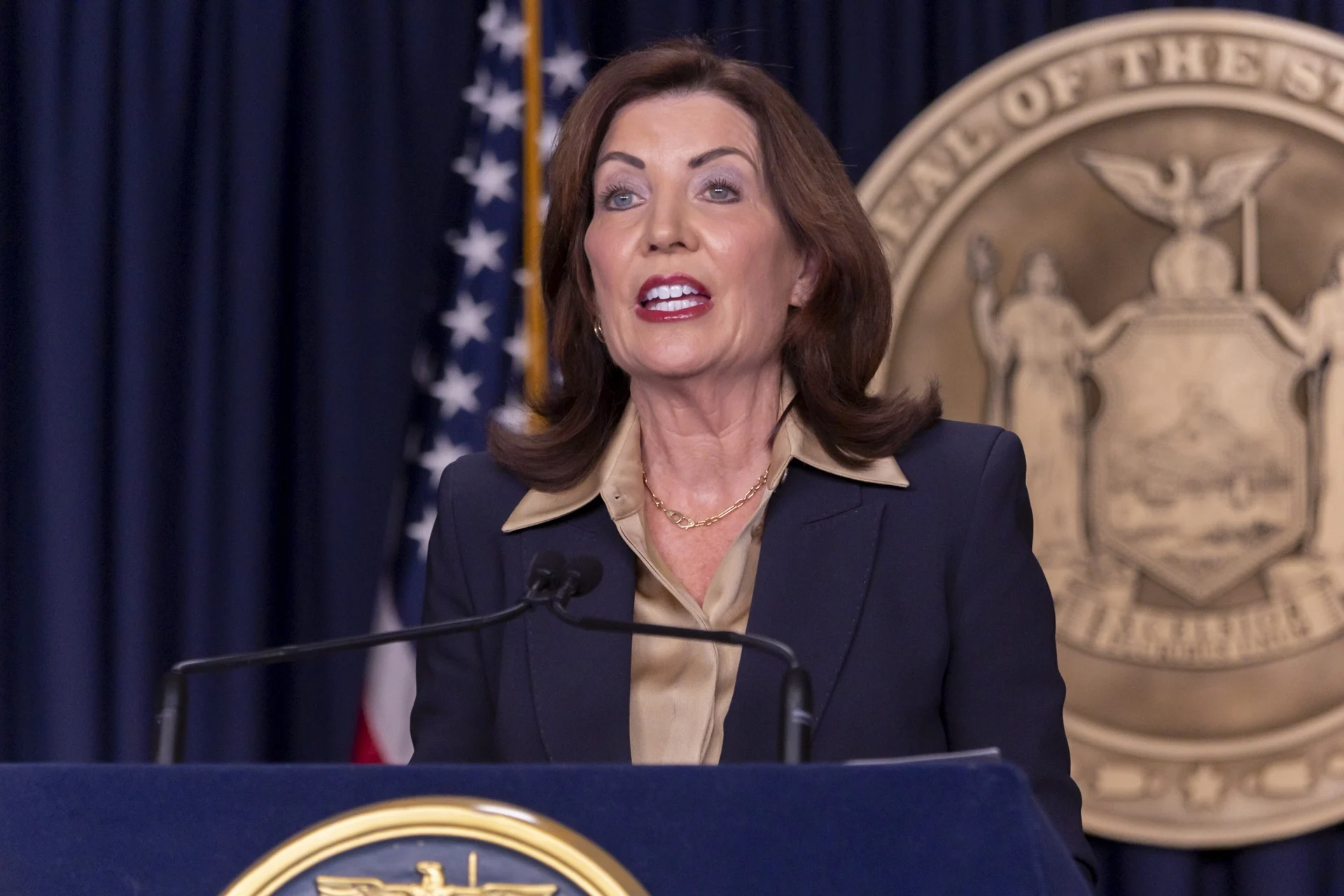International
The Government of Venezuela says that detained former officials diverted funds to opposition campaign

The Government of Venezuela accused on Tuesday former officials of the municipality of Maracaibo (northwest) – Zulia state -, among them, the former anti-Chavista mayor Rafael Ramírez Colina, of diverting public resources to finance acts of the campaign of the majority opposition, the Democratic Unitary Platform (PUD).
The Minister of the Interior, Diosdado Cabello, said that Ramírez Colina – arrested on October 1 – “directly financed” “political and proselytising” activities, as well as “staff payments” outside the payroll of the Mayor’s Office, with resources obtained through the collection of the urban toilet service by seven companies hired for its collection in the capital of the state of Zulia.
Accusations of the Minister of the Interior of Venezuela
The provision of that service “was charged” despite the fact that they “did not collect” the garbage, and that money, as Cabello explained, “was used to finance the First Justice party,” of which the former official is part, and to “finance mobilization activities of Edmundo González’s campaign” in Zulia.
In a press conference, broadcast by the state channel VTV, Cabello reproduced a video showing the opponent Pedro Guanipa, former director of the Mayor’s Office of Maracaibo -detained in September-, confessing that he was aware of the “financing (…) authorized by Mayor Rafael Ramírez for the campaign activities of Edmundo González and María Corina Machado.”
They involve Juan Pablo Guanipa
In addition, Cabello said that former deputy Juan Pablo Guanipa is also involved in this corruption plot, who “was given” about “50,000 dollars a week”, even though his brother Pedro Guanipa said in the video reproduced that the “financing” to “political activities” of the former parliamentarian “throunder’s Mayor’s Office” was about “6,000 dollars a month.”
In total, the embezzlement, according to the minister, exceeds 2.7 million dollars, and “only in the hiring” of the seven companies.
In the last elections, Ramírez Colina supported the candidacy of González Urrutia, leader of the largest opposition coalition, which recognizes him as the winner of the elections, even though President Nicolás Maduro proclaimed him the electoral entity the winner.
International
New York Announces First 2,000 Seats in Universal 2-K Program

The Governor of New York, Kathy Hochul, and New York City Mayor Zohran Mamdani took another step today in their universal early education agenda by announcing the communities that will have access to the first 2,000 seats in the new 2-K program this fall — an initiative backed by a $73 million investment.
The funding is part of the $1.2 billion package previously unveiled by Hochul to strengthen child care and early childhood education across the city, one of the key campaign promises of the now Social Democratic mayor.
At the time of the announcement, the governor also outlined additional funds to reinforce the existing 3-K early education infrastructure, a program launched under former Mayor Bill de Blasio (2014–2021).
When the 2-K initiative was introduced in January, Mayor Mamdani explained that its first phase would offer 2,000 seats, with the goal of eventually expanding into a universal program — a commitment supported by the governor.
State investment in child care and preschool services is expected to increase to $4.5 billion by fiscal year 2027.
Among the first communities set to benefit from the 2,000 seats are Upper Manhattan and Inwood — areas with large Dominican populations — as well as Fordham and Kingsbridge in the Bronx, a borough with a Latino majority.
In East Brooklyn, Canarsie, Brownsville, and Ocean Hill will also be included. Meanwhile, Ozone Park and the Rockaways are among the neighborhoods that will see the rollout of the 2-K program.
International
Warner Bros. Developing First ‘Game of Thrones’ Movie With ‘Andor’ Writer

Warner Bros. is developing the first feature film based on the hit saga Game of Thrones, with Beau Willimon — screenwriter of Andor — attached to direct, according to a report published Tuesday by Page Six.
The project, currently in early development, will focus on the conquest of King Aegon I Targaryen. A separate television adaptation centered on the same historical storyline within the franchise is also in early stages at HBO.
However, the outlet noted that it remains unclear whether the film will move forward following the recent acquisition of Warner Bros. Discovery by Paramount Skydance.
If the merger is finalized, the movie could potentially be shelved, although that scenario appears unlikely given that the Game of Thrones franchise remains one of HBO’s most valuable and beloved properties.
After six seasons adapting the work of George R. R. Martin, the platform expanded the universe with House of the Dragon, a prequel series set 200 years before the events of Game of Thrones that explores the history of House Targaryen.
International
Spain’s Prime Minister to Address Nation Amid Trump’s Trade Threats

The Prime Minister of Spain, Pedro Sánchez, will deliver an institutional address this Wednesday at the Moncloa Palace regarding the escalating situation in the Middle East and recent threats directed at Spain by U.S. President Donald Trump.
The Spanish government announced that Sánchez will make a statement at 9:00 a.m. local time to outline his position on the latest developments following the U.S. and Israeli attacks on Iran.
Sánchez is expected to reiterate Spain’s reasons for opposing the use of U.S. military bases on Spanish soil in the operation—an action he has already described as being outside international law—while also expressing criticism of the Iranian regime.
Government sources indicated that the address had been planned prior to Trump’s remarks criticizing Spain’s stance. However, following those comments, Sánchez is now also expected to respond directly to the U.S. president’s statements.
Trump has threatened to “cut all trade with Spain” and said he wants “nothing to do” with the country after Madrid refused to authorize the use of the Morón and Rota military bases in southern Spain for operations against Tehran.
The U.S. president also labeled Spain “a terrible NATO partner” and warned that “no one” would tell him he could not use the facilities.
In response, the Spanish government stated that Spain fulfills its commitments to NATO and European defense. It also warned Trump that any review of bilateral trade relations must respect international law and the agreements in place between the European Union and the United States.
-

 International2 days ago
International2 days agoIran Reports 201 Dead, 747 Injured After U.S. and Israeli Strikes
-

 International2 days ago
International2 days agoPope Leo XIV Urges End to ‘Spiral of Violence’ in Middle East
-

 International4 days ago
International4 days agoTrump Floats “Friendly Takeover” of Cuba Amid Rising Tensions
-

 Sin categoría3 days ago
Sin categoría3 days agoTrump: ‘We Think It’s True’ Amid Claims Iran’s Supreme Leader Was Killed
-

 International3 days ago
International3 days agoSecurity Council to Hold Emergency Meeting on Middle East Crisis
-

 International1 day ago
International1 day agoBrazil’s Supreme Court Rejects Bolsonaro’s Bid for House Arrest
-

 International4 days ago
International4 days agoArgentina’s Senate Reviews Milei-Backed Labor Overhaul
-

 International1 day ago
International1 day agoAnti-ICE Billboard Campaign Targets Immigration Spending in 31 U.S. Cities
-

 International1 day ago
International1 day agoTrump Warns of ‘Major Wave’ of Attacks as Iran Conflict Escalates
-

 International1 day ago
International1 day agoMexico Calls for Immediate Probe After National Dies in ICE Custody
-

 Central America1 day ago
Central America1 day agoPanama Canal Monitoring Trade as Middle East Conflict Disrupts Shipping
-

 International1 day ago
International1 day agoBolivia Orders Three Investigations Into Deadly Military Plane Crash
-

 International3 hours ago
International3 hours agoNew York Announces First 2,000 Seats in Universal 2-K Program
-

 International3 hours ago
International3 hours agoSpain’s Prime Minister to Address Nation Amid Trump’s Trade Threats
-

 International3 hours ago
International3 hours agoWarner Bros. Developing First ‘Game of Thrones’ Movie With ‘Andor’ Writer
-

 Central America3 hours ago
Central America3 hours agoGuatemala’s Attorney General Fails in Bid for Top Court Seat Amid Corruption Allegations




























